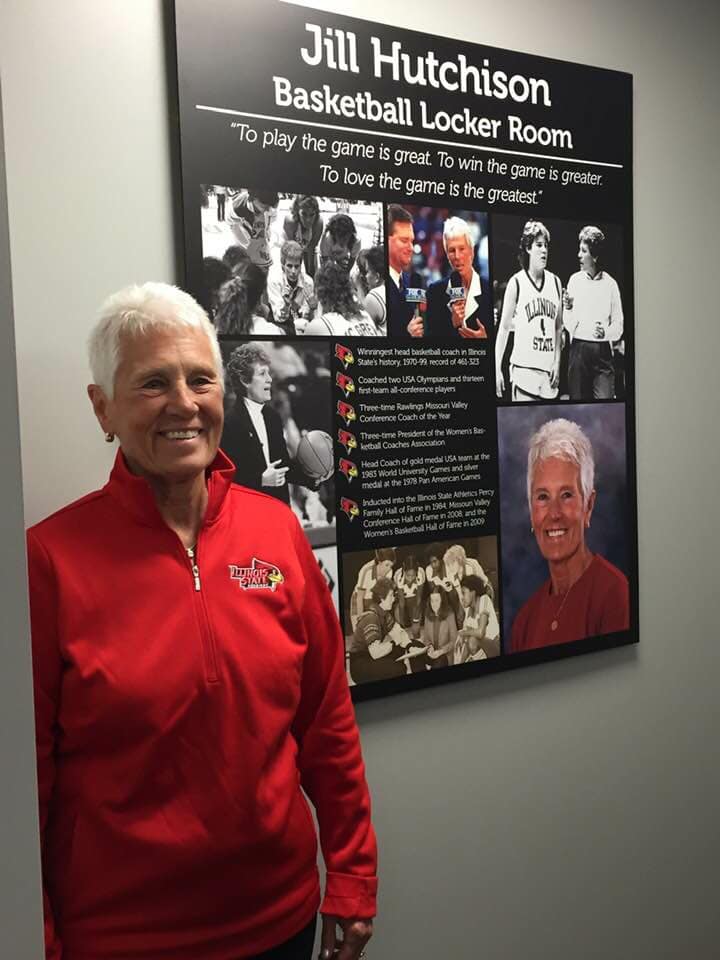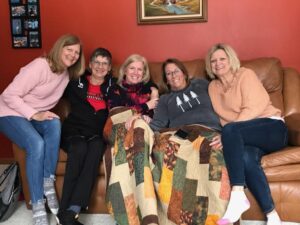 Girlfriends get us through tough times, celebrate our victories and always got our back.
Girlfriends get us through tough times, celebrate our victories and always got our back.
In our senior year at Illinois State University, I shared a townhouse off campus with five friends. We called ourselves family.
Ever loyal fans, they supported me my final season of college basketball that began badly with a back injury. Frustrated by the setback, I limped in walking crooked. They welcomed me home by tilting the wall pictures sideways too.
When my younger sister needed a place to stay, they squeezed her in. I forfeited my spot in our triple, moved to the basement, slept on a mat on the floor and stored clothes in cardboard boxes. In the dungeon, I never heard my 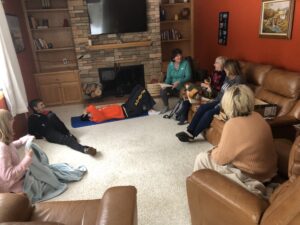 bunkmates’ early alarm clock with the darn dozer button. It never felt like a sacrifice until the basement flooded.
bunkmates’ early alarm clock with the darn dozer button. It never felt like a sacrifice until the basement flooded.
Only one housemate was my biological sibling, but we called each other sisters, except for the most responsible one in the group, who we nicknamed mom.
“The family” was always there for me.
Every happy occasion we played our theme song, “We are Family,” and danced our fool heads off.
They hugged me goodbye at the airport, when I chased my dream to play pro ball in Paris. After my career ending car accident in France, they flew abroad to urge me to keep fighting. They held my hand when I lost my first baby in an  harrowing miscarriage at an isolated cabin in the woods. When our children were still young enough to drag around, we gathered for “family reunions” on my stateside visits.
harrowing miscarriage at an isolated cabin in the woods. When our children were still young enough to drag around, we gathered for “family reunions” on my stateside visits.
When my dad died, they flew in from all over to attend his memorial service. The only one who could not be there sent her husband as a stand in.
Forty-five years after college graduation, during a bitter cold January, they drove six hours to Minneapolis to see me before I flew back home to Switzerland.
My husband, bless his little cotton socks, catered to us. Like a 5 star French chef, he served fine wine, "boeuf 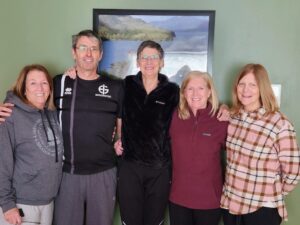 bourguignon", and "mousse au chocolat". Over champagne, we toasted to ISU, to friendship, to resiliency. We survived thyroid cancer, breast cancer, brain surgery, a car wreck and other calamities.
bourguignon", and "mousse au chocolat". Over champagne, we toasted to ISU, to friendship, to resiliency. We survived thyroid cancer, breast cancer, brain surgery, a car wreck and other calamities.
None of us followed the traditional script. We navigated divorce, death of a spouse, childbirth, adoption, step-children, cross cultural marriage and grandchildren.
We shared highlights and hardships, disappointments and disasters, triumphs and tragedies.
We attained lofty goals becoming a pro athlete, a physical therapist, teachers, coaches, and administrators. We raised families, nurtured aging parents, dedicated our careers to helping others.
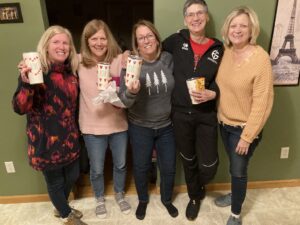 We treasured memories of that special time as college students when we starred in our own life stories savoring lazy weekends, crazy keggers and Florida spring break.
We treasured memories of that special time as college students when we starred in our own life stories savoring lazy weekends, crazy keggers and Florida spring break.
Never again would we be so carefree or live under the same roof, but we knew we could count on each other forevermore. Always. Til death do us part.
Thankfully, we are all still here.
Dancing!
“We are Family. I got all my sisters with me!”
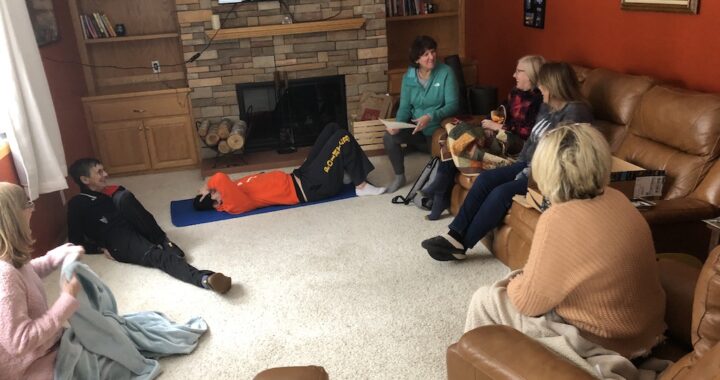
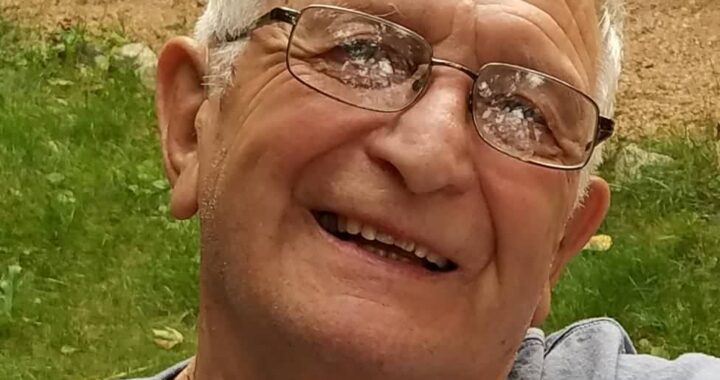
 Dad was my lighthouse, guiding me ashore when lost in life’s stormy sea. He died on August 8, 2022 just nine days shy of his 91st birthday. Without him I drift bereft.
Dad was my lighthouse, guiding me ashore when lost in life’s stormy sea. He died on August 8, 2022 just nine days shy of his 91st birthday. Without him I drift bereft.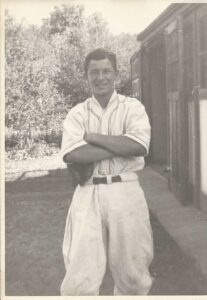 As a college athlete at Northern Illinois State University, he was a 3 sport division I athlete and MVP in 2 major sports. He was inducted into the NIU hall of fame three times, as an individual player and as a team member in the 1951 football and baseball teams. He was part of the NIU Century Basketball Team and Decade “50’s” football team. As a coach, he was also inducted into the Sterling High School Hall of Fame and the Illinois Basketball Coaches’ Association Hall of Fame.
As a college athlete at Northern Illinois State University, he was a 3 sport division I athlete and MVP in 2 major sports. He was inducted into the NIU hall of fame three times, as an individual player and as a team member in the 1951 football and baseball teams. He was part of the NIU Century Basketball Team and Decade “50’s” football team. As a coach, he was also inducted into the Sterling High School Hall of Fame and the Illinois Basketball Coaches’ Association Hall of Fame.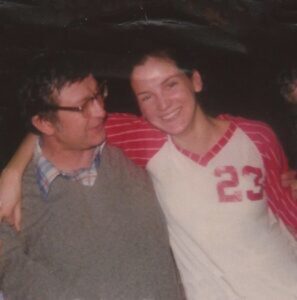 At a time when women’s sports was taboo, his guidance made me an outstanding pioneer basketball player — one of the 1st female athletic scholarship recipients at Illinois State University, professional players in the USA and American women to play in Europe.
At a time when women’s sports was taboo, his guidance made me an outstanding pioneer basketball player — one of the 1st female athletic scholarship recipients at Illinois State University, professional players in the USA and American women to play in Europe.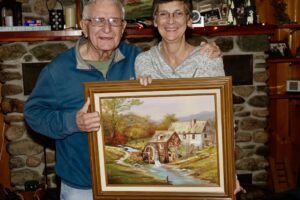 Dad, I wish I could play my guitar for you one last time.
Dad, I wish I could play my guitar for you one last time.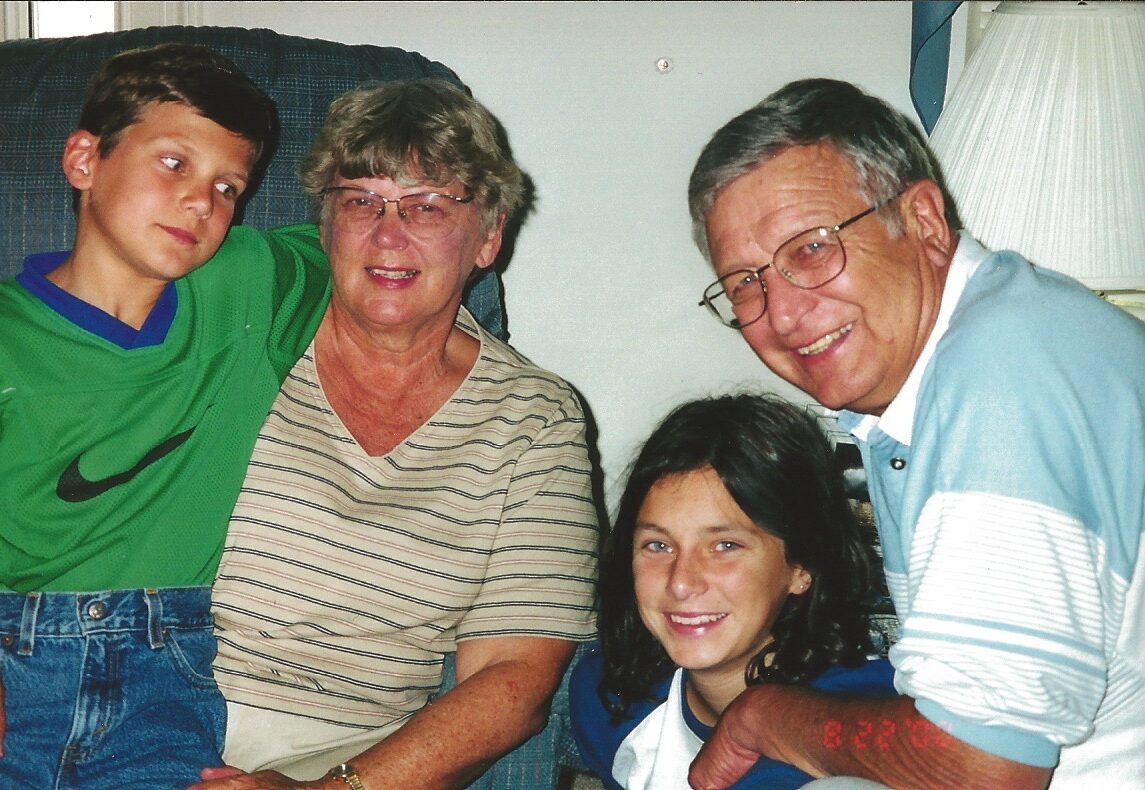
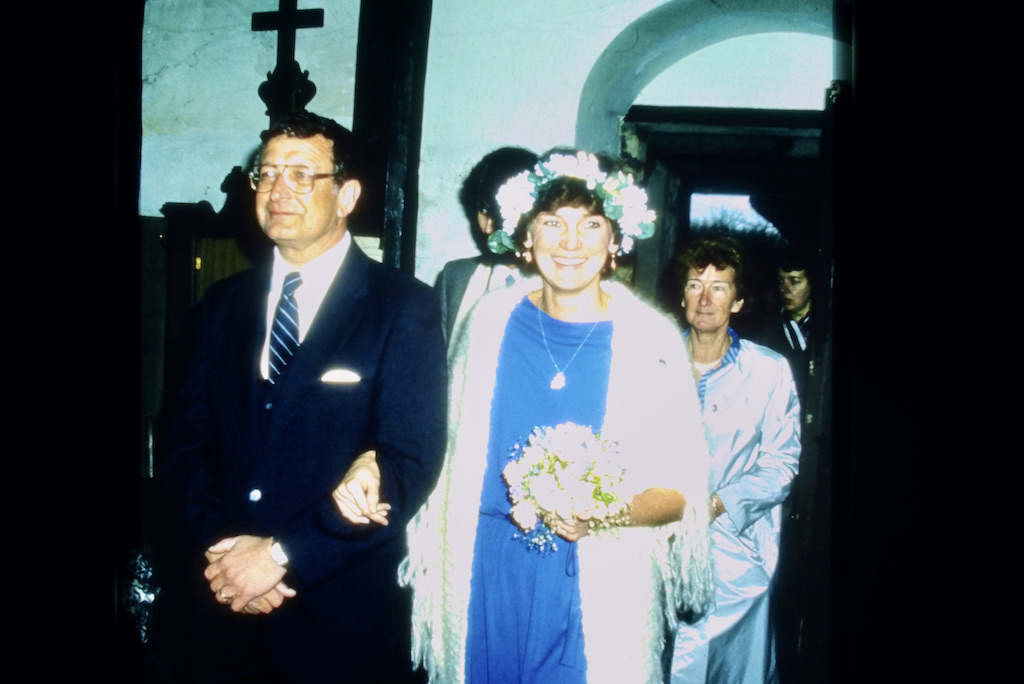
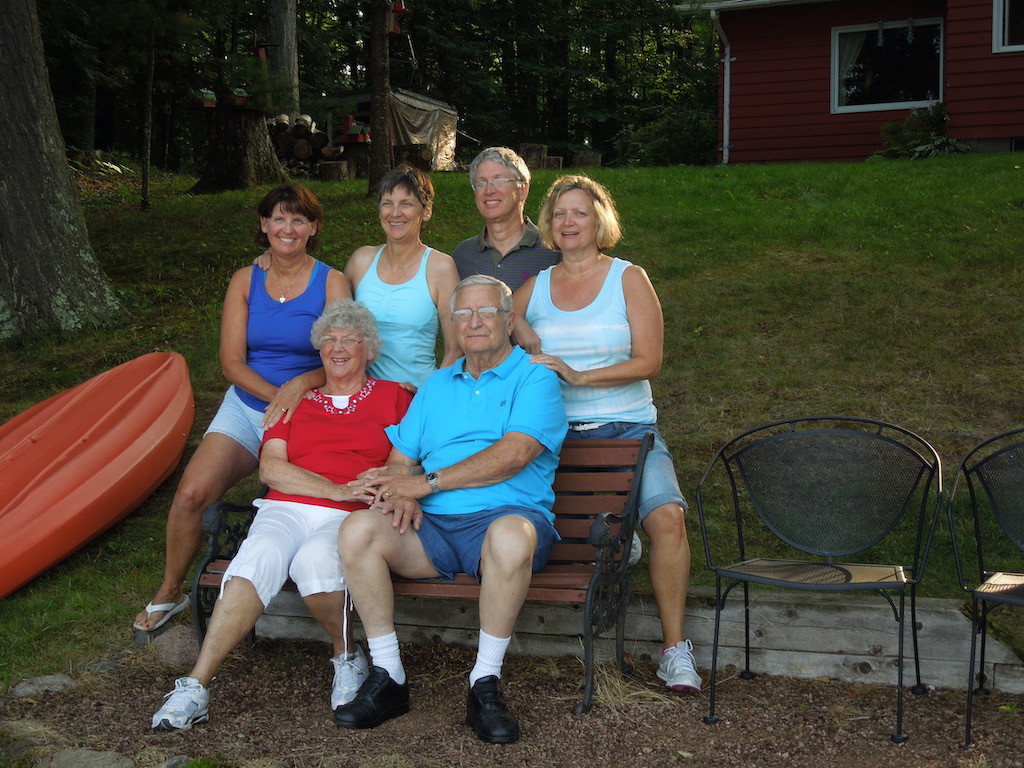
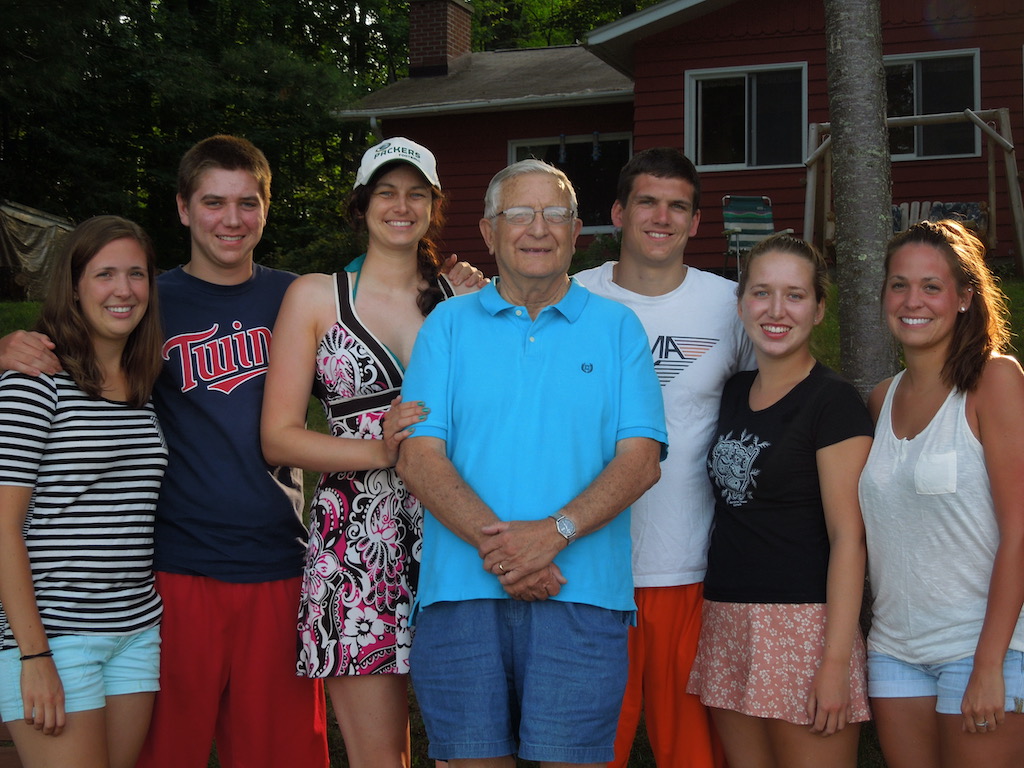

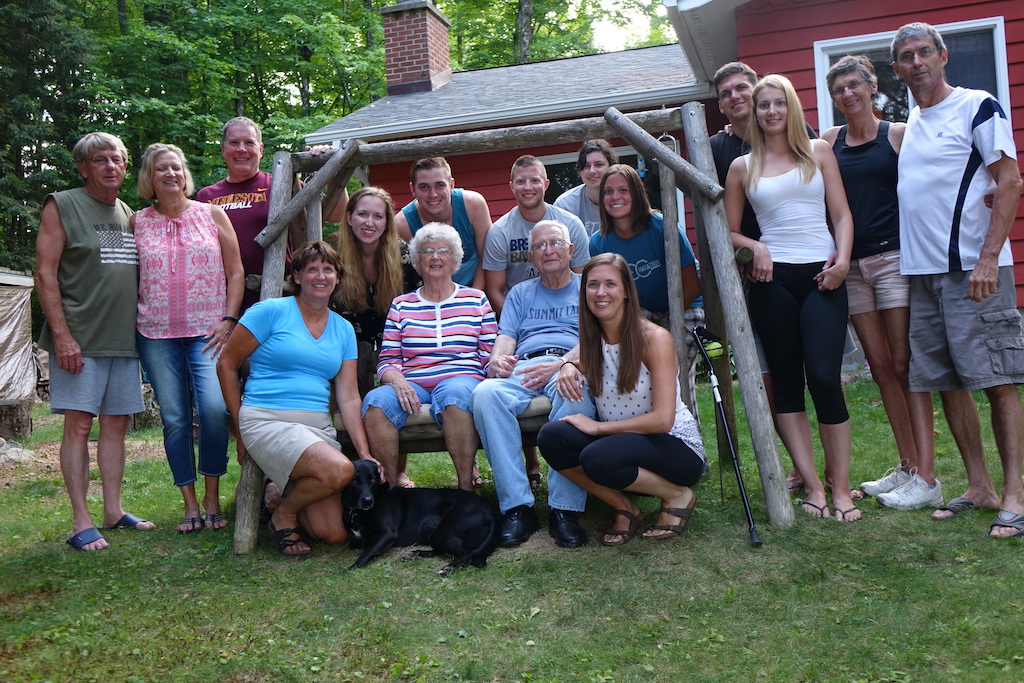
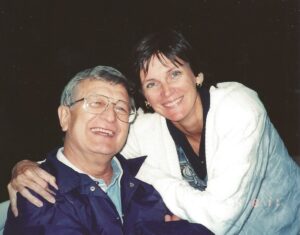
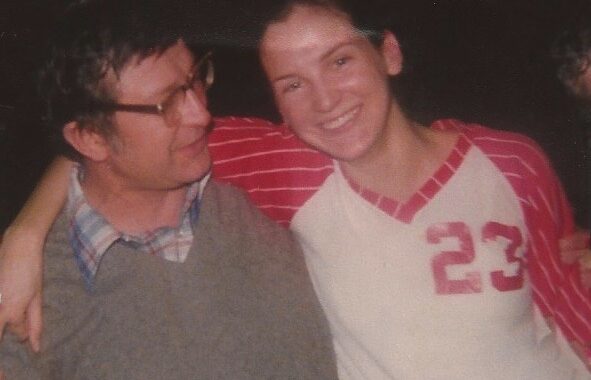
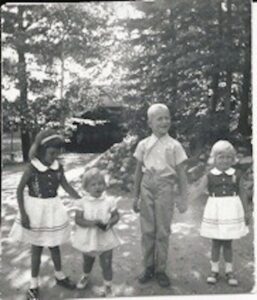 If I pursued a career unheard of for women, moved abroad and rewrote my script after my dream collapsed in an accident, it is because of you, my pioneer dad, who believed in me every step of the way.
If I pursued a career unheard of for women, moved abroad and rewrote my script after my dream collapsed in an accident, it is because of you, my pioneer dad, who believed in me every step of the way.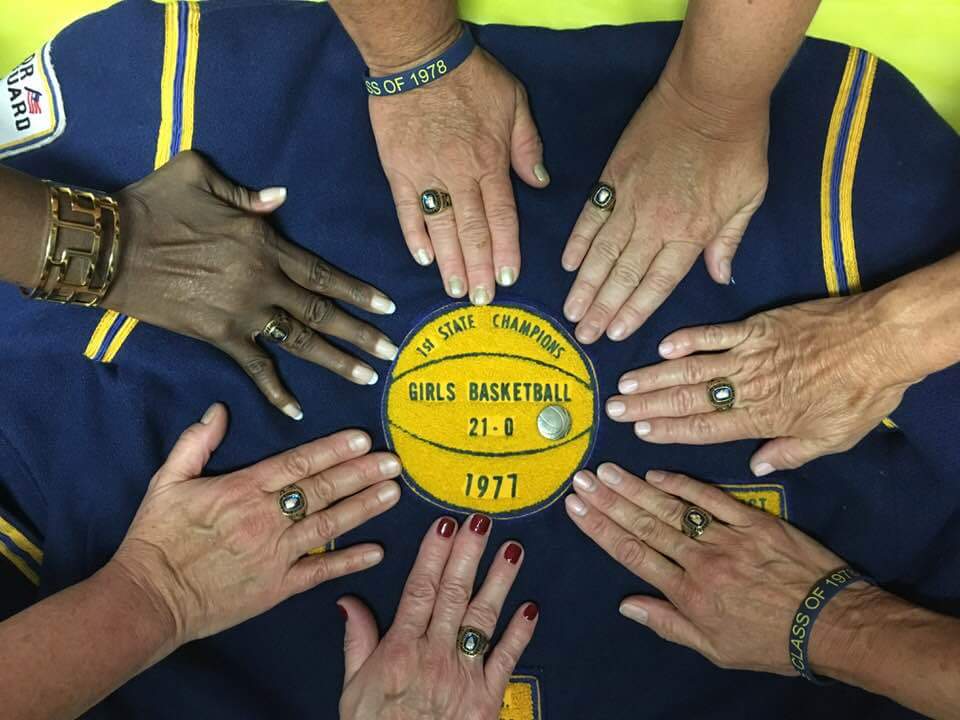
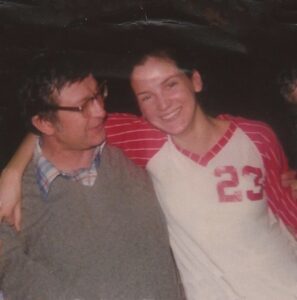
 As the head of our McKinzie clan, you set the finest example of what it means to be an honorable leader, a strong chief, and a benevolent father.
As the head of our McKinzie clan, you set the finest example of what it means to be an honorable leader, a strong chief, and a benevolent father.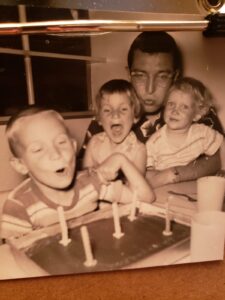
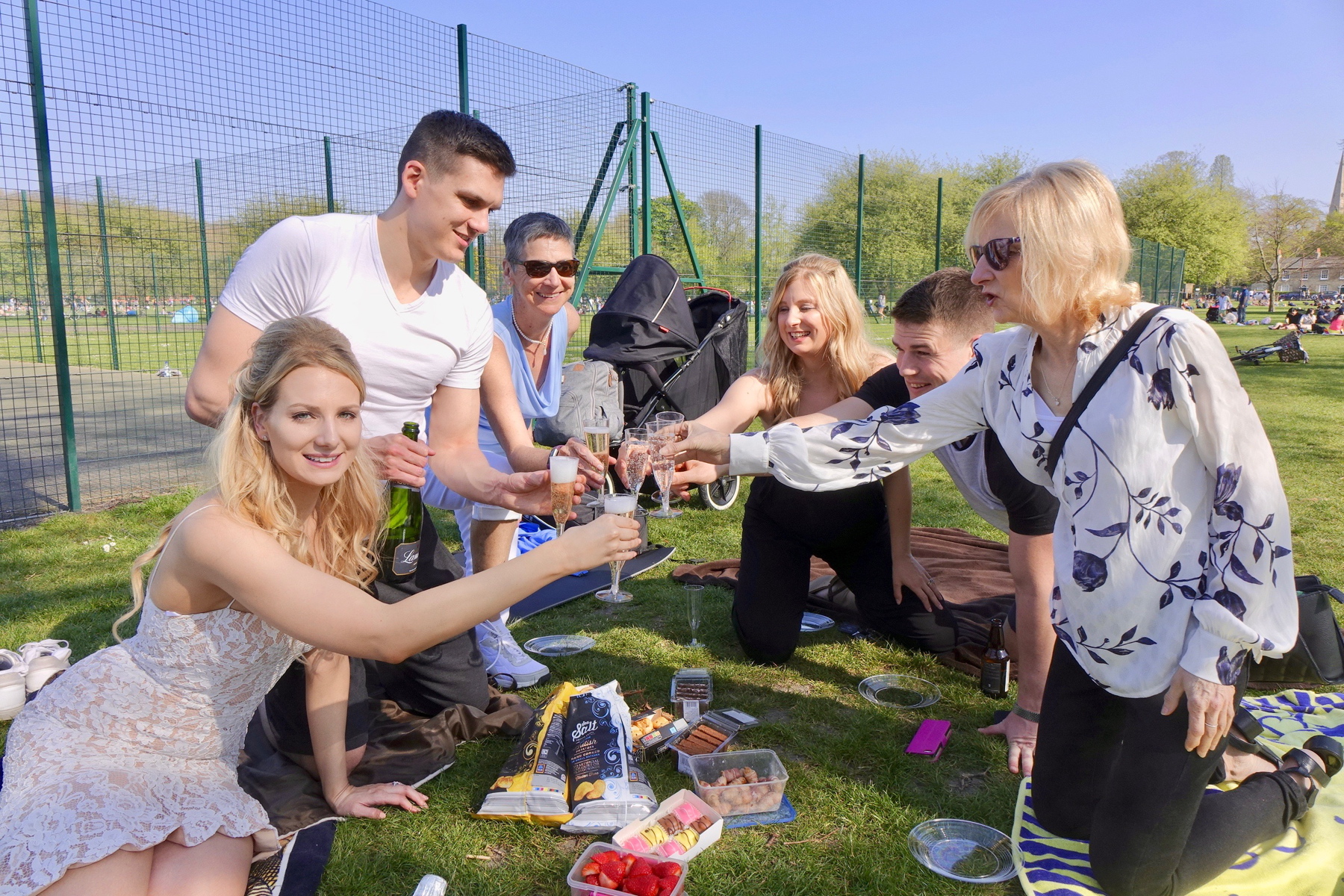
 When my son’s British fiancé told us we were celebrating their engagement by going punting in Cambridge, I imagined kicking the pigskin around a ballpark. But the English don’t play American football. Then I thought it must have something to do with rugby, as her brother-in-law is an avid rugby man.
When my son’s British fiancé told us we were celebrating their engagement by going punting in Cambridge, I imagined kicking the pigskin around a ballpark. But the English don’t play American football. Then I thought it must have something to do with rugby, as her brother-in-law is an avid rugby man. A person navigates by standing on the till (known as the deck) at the back, not paddling, but poling. It looks easy. It’s not. Imagine trying to propel a dozen hefty passengers forward by pushing off the river bottom with a pole vault stick.
A person navigates by standing on the till (known as the deck) at the back, not paddling, but poling. It looks easy. It’s not. Imagine trying to propel a dozen hefty passengers forward by pushing off the river bottom with a pole vault stick.
 “On your right is St. John’s,” our guide said, “one of the oldest and most celebrated colleges in Cambridge.”
“On your right is St. John’s,” our guide said, “one of the oldest and most celebrated colleges in Cambridge.”

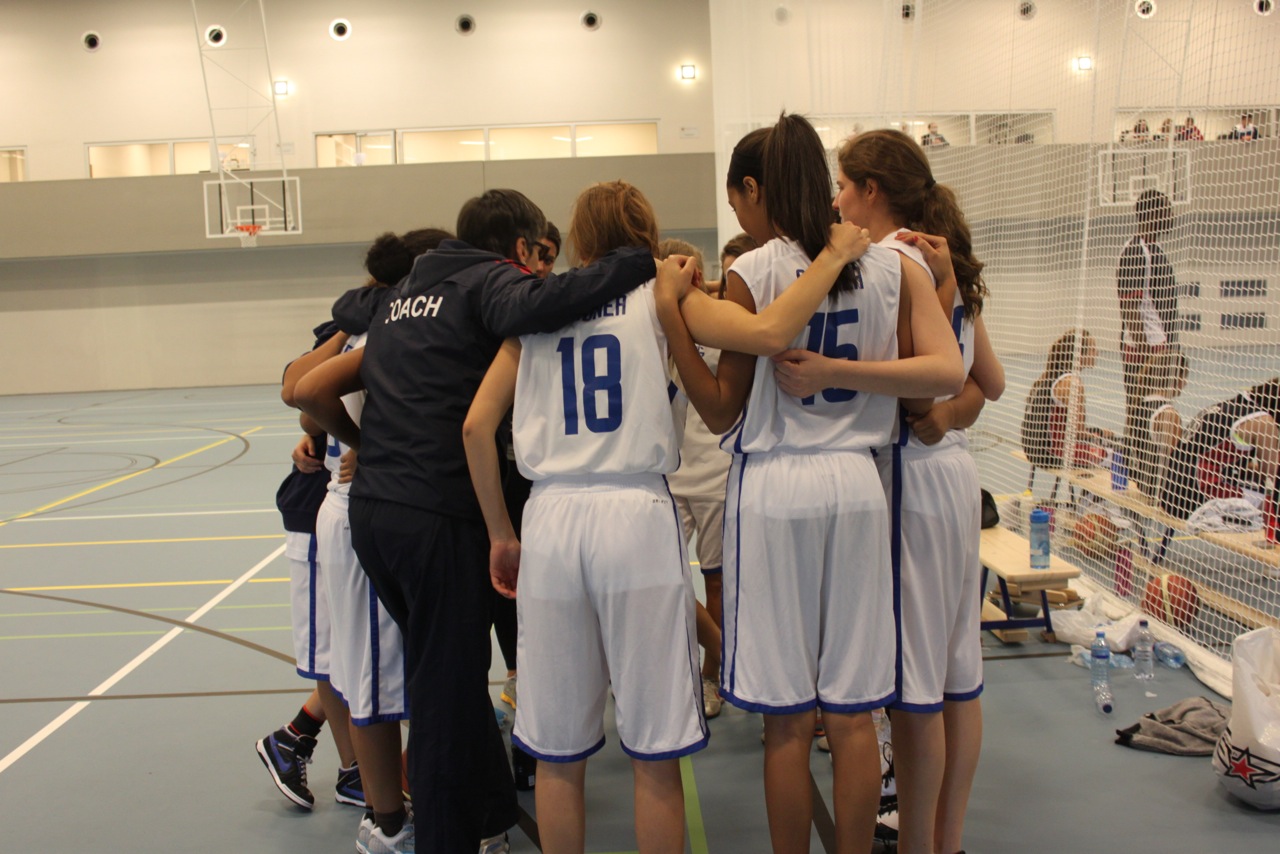
 Basketball symbolizes Illinois as much as sweet corn, the red bird and Abe Lincoln.
Basketball symbolizes Illinois as much as sweet corn, the red bird and Abe Lincoln.
 cage title (1976-77) hosted by Illinois State.
cage title (1976-77) hosted by Illinois State.
 en including Hutchison advocated for women even before the
en including Hutchison advocated for women even before the 